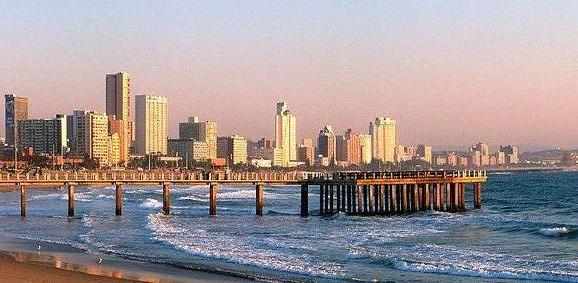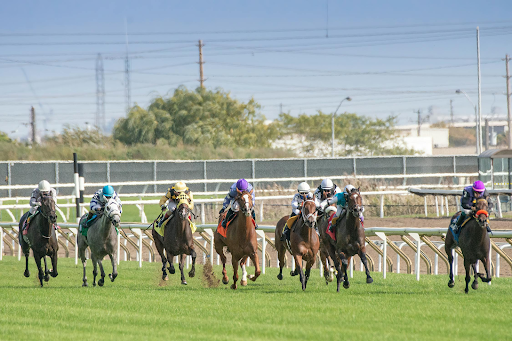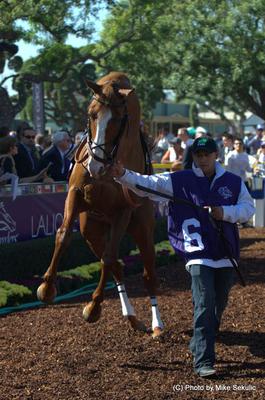The Horse Racing Industry In South Africa Today
Is the horse racing industry in South Africa today weathering the storm?
 The South African City Of Durban
The South African City Of DurbanIn the predawn light at Kenilworth Racecourse, Cape Town's historic racing venue, veteran trainer Mike Robinson watches his thoroughbreds gallop across the dew-laden track. The silhouettes of Table Mountain loom in the background—a picturesque scene that has played out for generations. But behind this timeless tableau lies an industry fighting for survival against mounting economic pressures.
"Twenty years ago, these stands would be packed on a Saturday," Robinson remarks, gesturing toward the nearly empty grandstand. "Now we're lucky if we fill a quarter of the seats. The glory days seem further away with each passing season."
South Africa's horse racing industry, once the pride of the nation's sporting and cultural heritage, finds itself at a critical crossroads. A perfect storm of economic challenges, changing consumer habits, and structural issues threatens an institution that dates back to 1797, when the first recorded race meeting was held in Cape Town.
The Betting Battleground
The most significant blow to South African horse racing has been the dramatic decline in tote betting—once the financial lifeblood of the industry. As smartphones replaced betting slips and digital platforms emerged offering countless gambling alternatives, the traditional on-course betting model has steadily eroded.
Warren Lenferna, CEO of Gold Circle Racing and Gaming, explains: "We're competing not just with sports betting, but with instant gratification gambling. A horse race happens every 30 minutes, but someone can bet on a virtual race or casino game every 30 seconds online. That's our reality now."
The numbers tell a stark story. Industry reports indicate that horse race betting has declined by approximately 40% over the last decade, while sports betting and other gambling options have seen double-digit growth.
"The betting public has changed," says Charles Savage, a prominent bookmaker based in Johannesburg. "Younger gamblers don't have the patience or interest in studying form. They want instant results, and horse racing requires knowledge and dedication that many aren't willing to invest anymore."
 Table Mountain Overlooking Cape Town
Table Mountain Overlooking Cape TownEconomic Headwinds Facing The Horse Racing Industry In South Africa Today
South Africa's broader economic challenges have exacerbated the racing industry's difficulties. With unemployment hovering around 32% and inflation eating away at disposable income, recreational spending on activities like horse racing has suffered.
"We're a luxury entertainment product in a country where many people are struggling to meet basic needs," acknowledges prominent owner Chris van Niekerk. "When fuel prices rise or electricity costs increase, the first thing people cut is entertainment. Unfortunately, racing falls into that category."
The cost of horse ownership has simultaneously increased, creating a squeeze from both sides. Feed costs have risen dramatically, veterinary care becomes more expensive each year, and transportation costs continue to climb.
Trainer Candice Bass-Robinson, who has followed in her father's footsteps at one of Cape Town's most successful stables, points to these rising costs: "We're trying to maintain world-class racing standards while our costs escalate and prize money struggles to keep pace. It's becoming increasingly difficult to make the numbers work for owners, and without owners, we simply don't have a sport."
 The challenges facing horse racing worldwide
The challenges facing horse racing worldwideThe Consolidation Crisis
The economic pressure has led to dramatic consolidation within the industry. Historic racecourses like Clairwood in Durban have been sold for development, while others face uncertain futures. Racing operators have merged or been acquired, resulting in fewer race meetings and reduced opportunities.
"The industry has had to right-size itself," explains John Stuart, a racing administrator with over three decades of experience. "It's painful, but necessary. We were operating on a model built for a different era. The challenge is managing this contraction while preserving the essence of what makes South African racing special."
This consolidation has particularly impacted rural racing communities, where smaller tracks provided both entertainment and employment.
Racing analyst Jane Truter sees this as a concerning trend: "When we lose a racecourse, we don't just lose a venue—we lose part of our heritage and a community hub. Each closure ripples through the local economy, affecting grooms, suppliers, and countless other connected businesses."
African Horse Sickness: The Export Barrier
A uniquely South African challenge has been the periodic restrictions on horse exports due to African Horse Sickness (AHS), a viral disease carried by midges that can be fatal to horses.
"Our bloodstock is world-class," states stud farm owner Mick Goss. "But international markets remain partially closed to us because of AHS concerns. When European or Asian buyers can't easily export our horses, they simply look elsewhere. We lose not just sales but international investment that could revitalize the industry."
The establishment of the AHS-free zone in the Western Cape has helped, but export protocols remain stringent and expensive, limiting the international reach of South African bloodstock.
Digital Transformation: Necessity and Opportunity
While digital disruption has challenged traditional betting models, it also presents opportunities for reinvention. Progressive racing operators have embraced streaming technology, social media engagement, and digital betting platforms.
"We have to meet our customers where they are," says Vee Moodley, CEO of the National Horseracing Authority. "That means creating digital experiences that complement the physical raceday. The pandemic forced us to accelerate this transformation, and those changes are now permanent."
Some success stories have emerged. The Hollywoodbets Durban July, South Africa's premier horse race, has embraced its role as both a sporting and fashion event, attracting sponsors and spectators who might otherwise never engage with racing.
"Big event days show that racing can still capture the public imagination," notes fashion designer and racing enthusiast Gideon. "But we need to translate that excitement into weekly interest, not just annual attendance."
The Way Forward For The Horse Racing Industry In South Africa Today
Despite these challenges, many industry stakeholders remain cautiously optimistic. They point to South Africa's exceptional horsemanship, affordable training fees (compared to international standards), and passionate core audience as foundations for rebuilding.
"South African racing has survived world wars, political transitions, and economic downturns," reflects veteran jockey Anthony Delpech. "We'll survive this too, but we'll emerge as something different—hopefully something more sustainable."
Industry bodies have begun collaborative efforts to restructure prize money distribution, attract new owners through syndication, and create more engaging raceday experiences. Youth development programs aim to cultivate the next generation of racing enthusiasts.
"The industry has recognized that change isn't optional—it's essential," says Phumelela Gaming executive Mary Slack. "We're finally seeing cooperation across sectors that were previously fragmented. That gives me hope."
As the morning gallops conclude at Kenilworth, Mike Robinson watches his horses cool down. Despite the challenges, there's still pride in his eyes.
"This industry has given so much to South Africa—jobs, international prestige, and incredible sporting moments," he says. "We owe it to the horses, the people who care for them, and our racing heritage to ensure it survives. It won't be easy, but nothing worthwhile ever is."
For South Africa's racing industry, the race isn't over—but the finish line has certainly moved. The question now is whether this proud sporting tradition can adapt quickly enough to clear the economic hurdles in its path and find a sustainable pace for the future.



